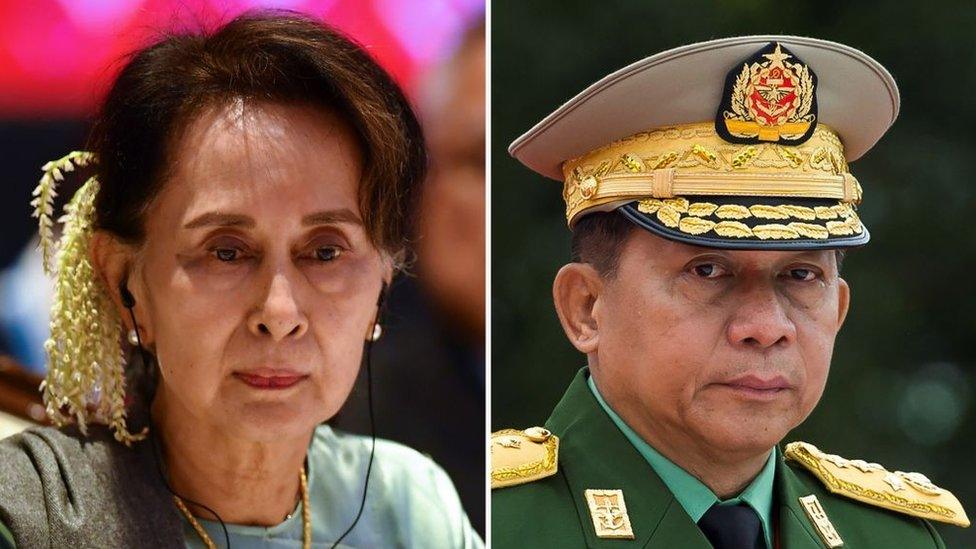Myanmar's military accuses Suu Kyi of taking $600,000 and gold
- Published
"The military is trying to ruin Aung San Suu Kyi's career"
Myanmar's military rulers have accused the ousted leader Aung San Suu Kyi of illegally accepting $600,000 (£430,000) and 11kg of gold.
The allegation is the strongest yet levelled by the military since it overthrew Ms Suu Kyi and the country's democratic leadership on 1 February.
No evidence was provided. An MP from her party denied the allegation.
Meanwhile a UN human rights investigator accused the military of committing "crimes against humanity."
Thomas Andrews told the UN Human Rights Council in Geneva, external that Myanmar was currently being "controlled by a murderous, illegal regime" which was likely perpetrating "widespread" and "systematic" killings, torture and persecution.
His claims were supported by the rights group Amnesty, which accused the military of going on a "killing spree".
Mr Andrew also called for sanctions on junta leaders and on the military-owned Myanmar Oil and Gas Enterprise, which is set to reach $1bn in revenue this year. The US has already announced sanctions on 10 coup leaders, including Myanmar's acting president, and three companies.
What is the latest from the protests?
At least seven more people were killed by security forces on Thursday, taking the total death toll to more than 70. Witnesses said some protesters had been shot in the head.
Six of those deaths took place in the central town of Myaing.
"We protested peacefully," a health worker there told Reuters news agency. "I couldn't believe they did it."
Allow X content?
This article contains content provided by X. We ask for your permission before anything is loaded, as they may be using cookies and other technologies. You may want to read X’s cookie policy, external and privacy policy, external before accepting. To view this content choose ‘accept and continue’.

A further death took place in the city of Yangon's North Dagon district, where 25-year-old Chit Min Thu died after being shot in the head.
"No-one will be in peace until this situation ends. They were so cruel with my son," his mother Hnin Malar Aung told AFP news agency.
Meanwhile, a senior official said the military had been "exercising utmost restraint" and accused the protesters of violent behaviour.
What are the allegations against Suu Kyi?
The accusation that she accepted $600,000 in cash and 11kg of gold was made by a former chief minister of Yangon, Phyo Mien Thein, who said he had given her the payments, junta spokesman Brig Gen Zaw Min Tun said. The anti-corruption committee was investigating, he added.
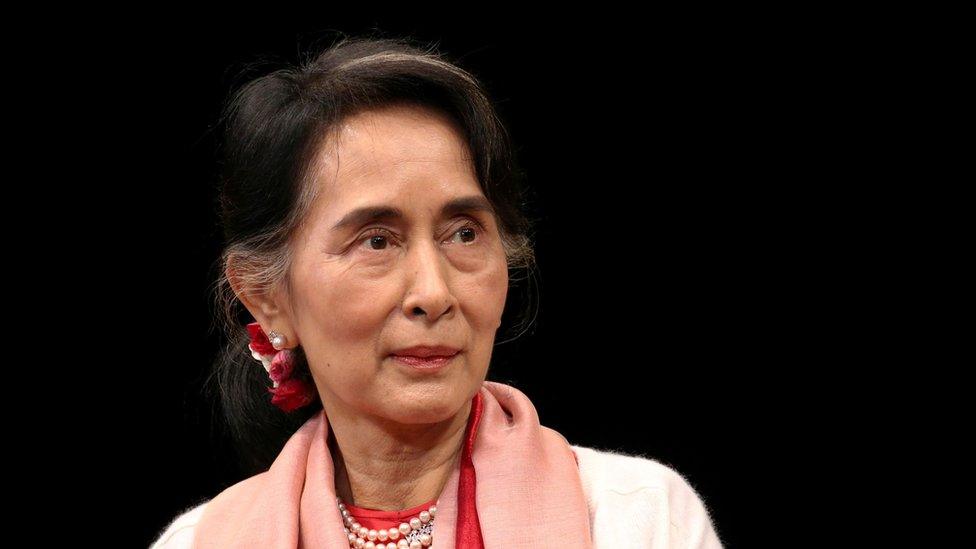
Aung San Suu Kyi was detained in February when the military took over Myanmar
But it was denied by an MP from the dissolved parliament representing Ms Suu Kyi's National League for Democracy (NLD) party.
"It is no longer uncommon to see slander against politicians and efforts to crush the party while innocent young people are killed in public," Aye Ma Ma Myo told Reuters.
Gen Zaw Min Tun also accused President Win Myint and several cabinet ministers of corruption.
What's the background?
Ms Suu Kyi's NLD won a landslide victory in the polls last year, but the military now claims the election was fraudulent.
Independent international observers have disputed the military's claim - saying no irregularities were observed.
Ms Suu Kyi has been held for the past five weeks at an undisclosed location and faces several charges including causing "fear and alarm", illegally possessing radio equipment, and breaking Covid-19 restrictions.
The illegal payments charge levelled on Thursday was the most serious so far. The value of the gold the military alleges she illegally accepted is roughly £450,000.
Myanmar has been gripped by street protests since the military seized control and detained Ms Suu Kyi. Her image has been held aloft by the protesters.
The UN, US and a host of other countries have condemned the killing of civilians in the crackdown against anti-coup protesters in Myanmar, and called on the authorities to exercise restraint.
The US has announced sanctions on coup leaders, while steps are also being taken to block access by the military to $1bn of government funds held in the US.
The military has dismissed criticism of its actions, instead blaming Ms Suu Kyi for the violence.

Myanmar profile
Myanmar, also known as Burma, became independent from Britain in 1948. For much of its modern history, it has been under military rule
Restrictions began loosening from 2010 onwards, leading to free elections in 2015 and the installation of a government led by veteran opposition leader Aung San Suu Kyi the following year
In 2017, Myanmar's army responded to attacks on police by Rohingya militants with a deadly crackdown, driving more than half a million Rohingya Muslims across the border into Bangladesh in what the UN later called a "textbook example of ethnic cleansing"

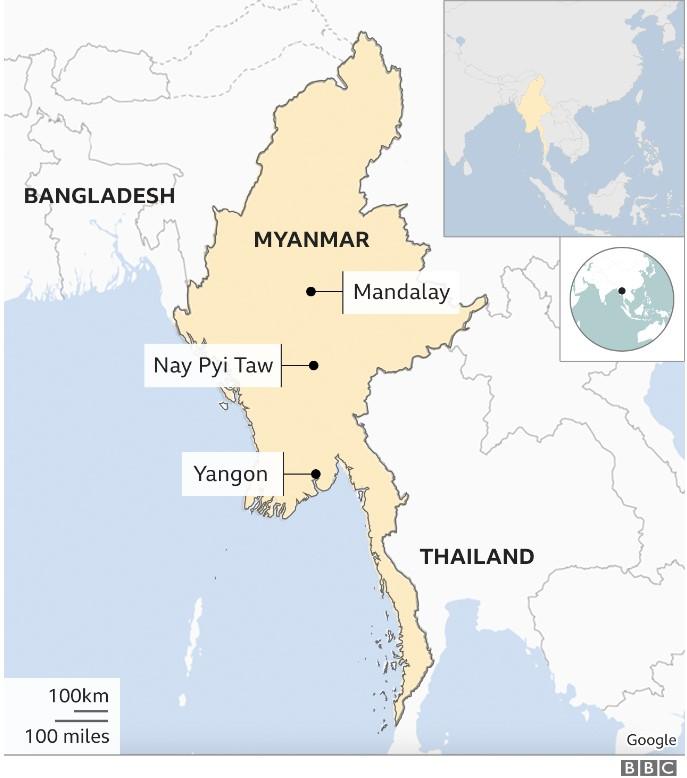
Related topics
- Published10 March 2021
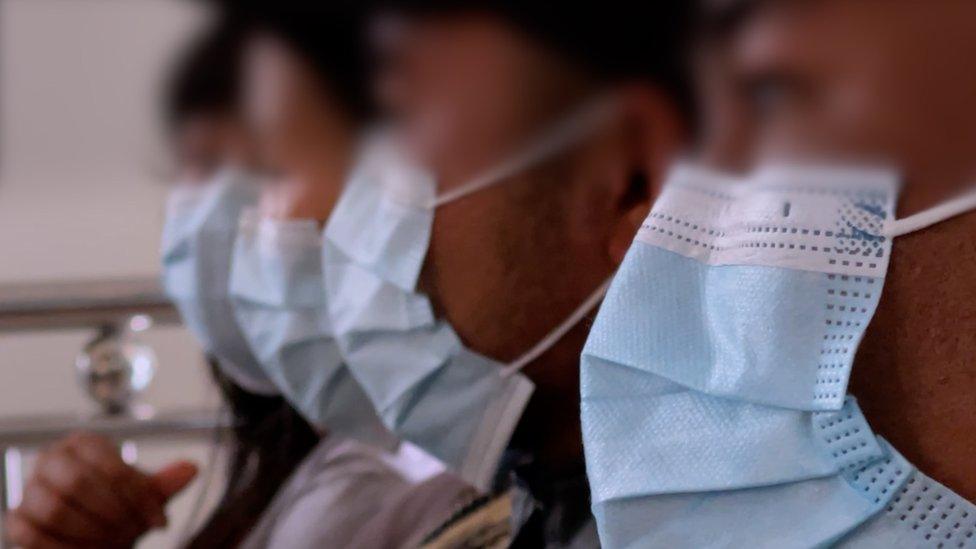
- Published7 March 2021
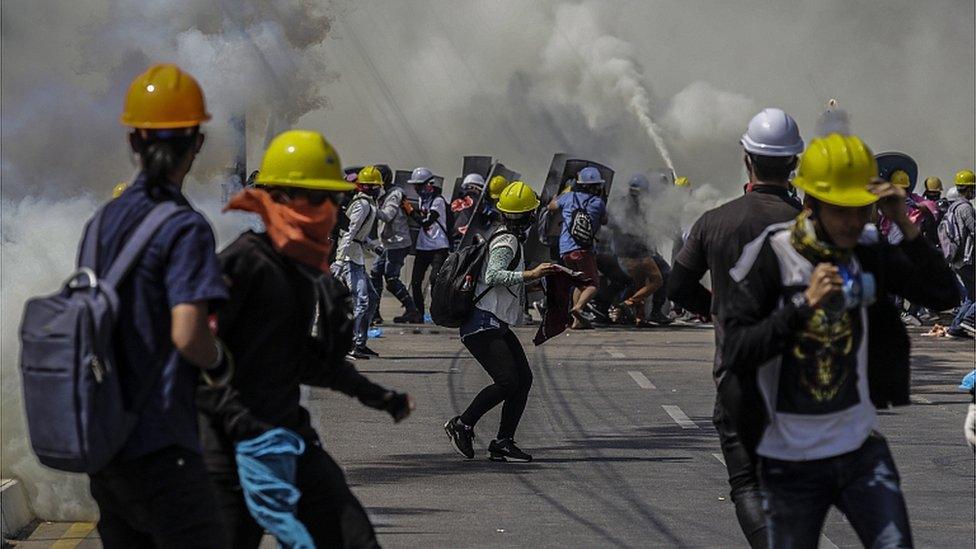
- Published10 March 2021
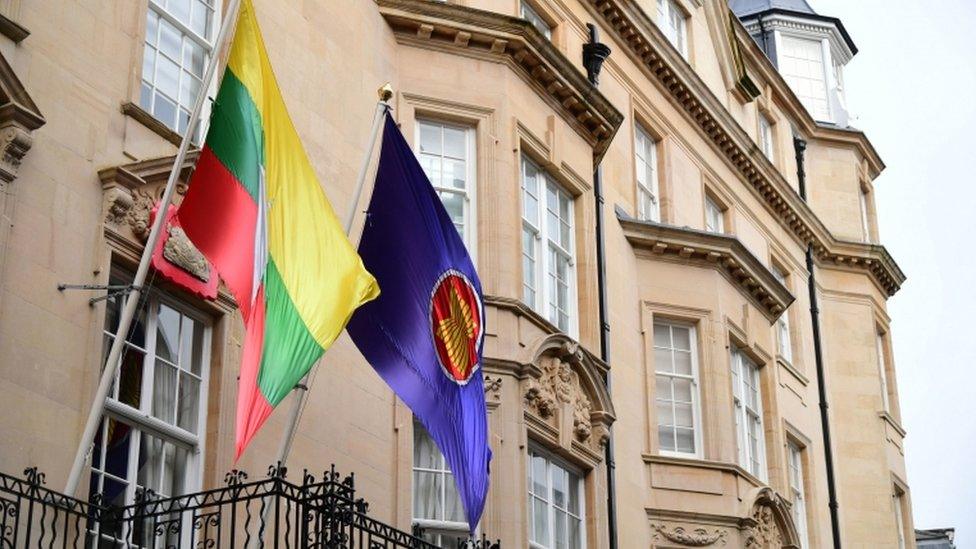
- Published9 March 2021
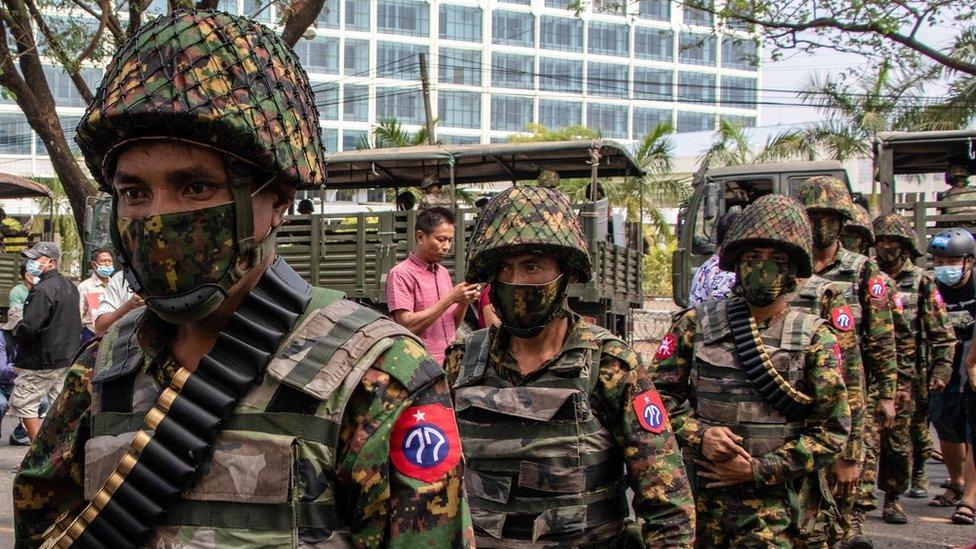
- Published13 February 2021
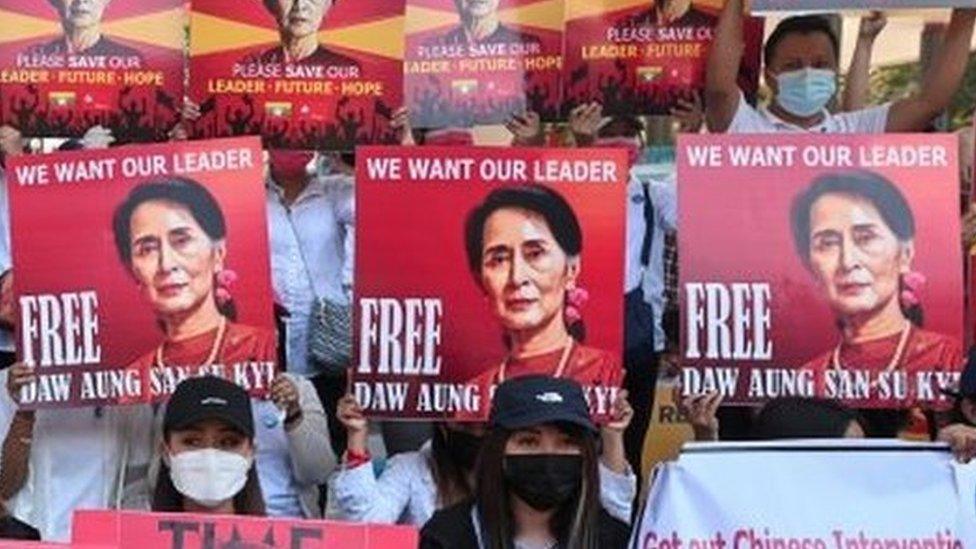
- Published26 February 2021
